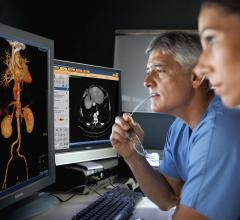3-D tomosynthesis is the latest technology to provide clearer images during screening and diagnostic procedures; however, it has not always been widely available. Hologic was the only vendor with U.S. Food and Drug Administration (FDA) approval until April of this year, when Siemens received the much-awaited green light to sell their product in the United States. In the KLAS report Women's Imaging 2015: Are New Technologies Delivering Promised Benefits?, data shows Hologic is still dominating the 3-D tomosynthesis marketplace but is facing competition from Siemens and GE. Now approved, Siemens did not waste any time upgrading their systems, and providers are responding positively. GE is not receiving the same response from users because their 3-D system is lagging due to implementation delays.


 November 16, 2015
November 16, 2015 




